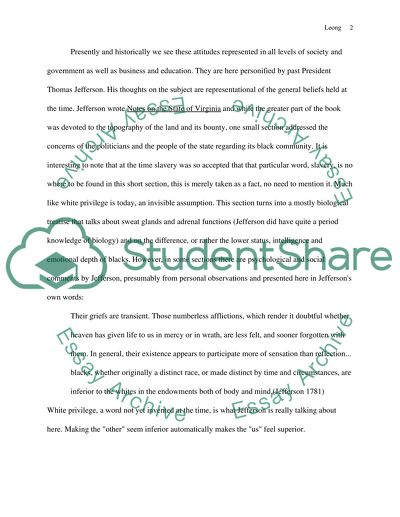Cite this document
(“White Privilege In The Social Work Curriculum Essay”, n.d.)
White Privilege In The Social Work Curriculum Essay. Retrieved from https://studentshare.org/sociology/1542718-argumentative-essay-white-privilege
White Privilege In The Social Work Curriculum Essay. Retrieved from https://studentshare.org/sociology/1542718-argumentative-essay-white-privilege
(White Privilege In The Social Work Curriculum Essay)
White Privilege In The Social Work Curriculum Essay. https://studentshare.org/sociology/1542718-argumentative-essay-white-privilege.
White Privilege In The Social Work Curriculum Essay. https://studentshare.org/sociology/1542718-argumentative-essay-white-privilege.
“White Privilege In The Social Work Curriculum Essay”, n.d. https://studentshare.org/sociology/1542718-argumentative-essay-white-privilege.


